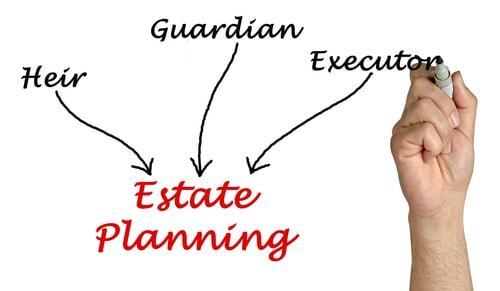Understanding the Role of the Executor
 One of the most important decisions in the estate planning process is who will be named as executor of the estate. The executor is the person who is responsible for overseeing and protecting the assets of the deceased person. He or she is responsible for ensuring that the wishes of the decedent are carried out, as well as maintaining any property of the estate until disbursement, settling the debts of the estate, and paying any taxes owed. It is critical for the person who is appointed executor to understand how to manage the estate. If they mismanage estate assets that add up to a loss to the beneficiaries of the estate, they can be held liable for those losses.
One of the most important decisions in the estate planning process is who will be named as executor of the estate. The executor is the person who is responsible for overseeing and protecting the assets of the deceased person. He or she is responsible for ensuring that the wishes of the decedent are carried out, as well as maintaining any property of the estate until disbursement, settling the debts of the estate, and paying any taxes owed. It is critical for the person who is appointed executor to understand how to manage the estate. If they mismanage estate assets that add up to a loss to the beneficiaries of the estate, they can be held liable for those losses.
Short-Term Responsibilities
Unless arrangements have been made before the person’s death, it is typically the executor’s responsibility to handle the financial arrangements for the deceased’s funeral and burial expenses. The funeral parlor also provides copies of the death certificate to the executor. It is important to obtain several copies of the death certificate since a copy will be necessary in order to access financial accounts and canceling government benefit checks (i.e. Social Security). A copy is also required to be filed with the final federal tax return of the estate.
Probate and Beyond
It is also the executor’s responsibility to file the deceased person’s will for probate. There can be no division of the estate until a probate judge gives their approval. Exceptions to this rule is if all the assets had been transferred to a living trust before the person died. Those assets can be disbursed to the designated beneficiaries without having to go through the probate process.
The executor is responsible for all of the deceased’s assets, not just financial accounts or real estate property. Furniture, artwork, antiques, and other items of value the person owned all must be dealt with appropriately. Any assets earned from the sale of those items become part of the estate and are used to pay off debts and/or distributed among the beneficiaries. It is also important to note that the executor is required to pay off the debts of the estate before disbursing assets to the beneficiaries.
Call a Lombard Estate Planning Lawyer
It can be legally complicated and a bit overwhelming to deal with the estate of a loved one. Although they may have had an attorney draw up estate documents, an executor is not required to use that same attorney. If you have questions regarding your role as an executor, contact an experienced DuPage County estate planning attorney today. Call 630-426-0196 for a confidential consultation.
Sources:
http://www.forbes.com/sites/bernardkrooks/2013/02/14/understanding-the-role-and-responsibilities-of-an-executor/
https://www.kiplinger.com/article/retirement/T021-C032-S014-how-to-perform-the-duties-of-executor-of-an-estate.html












